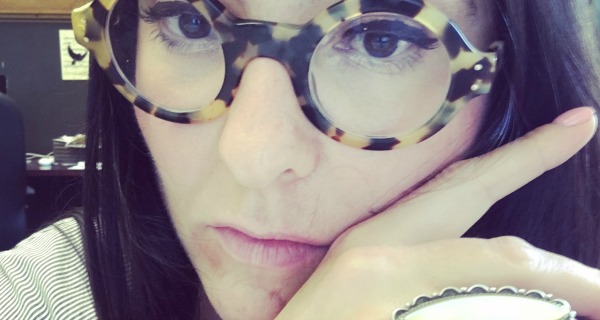
Lighthouse instructor Erika Wurth is the author of one novel (Crazy Horse's Girlfriend), two collections of poetry (Indian Trains and One Thousand Horses Out to Sea), and a short story collection, Buckskin Cocaine. Ahead of teaching our Intermediate Short Story Workshop (starting January 8), she chatted with me about the line between fiction and nonfiction, Denver's growth spurts, and her writing process.
Q. You have written extensively about things inspired by your experience growing up outside of Denver and as an Apache/Chickasaw/Cherokee. I’m curious what drew you to writing in the first place? Stereotypically, I think people assume great writing is drawn from dark pasts or living on the edge; do you think this idea has any validity?
A. I think you can be white and your characters can be completely white and nobody will think about the fact that you’re writing within the ethnicity that you are and come from. But what I do think about why I write and what I’ve noticed about why others often become writers is that great art requires mainly reading and practice. But conceptually, there is almost always tension. So if you are a person who comes from great tension, even if you come from the most suburban experience imaginable, this often creates an artist of some kind.
Q. You write in all the genres: fiction, nonfiction, poetry. Where do you think the line is between writing fiction that is heavily based off of one’s own experience versus something that is a memoir? Is it a label that’s purely nominal or do you think these boundaries are beneficial in terms of letting writers expand and explore?
A. I’m not really interested in content as much as I’m interested in form. Of course I understand the salacious aspect of prose. I have certainly been watching a movie or reading a book and wondered about the author and wondered about the veracity of the piece. But ultimately if you’ve written a fabulous story, what does it matter for the most part if it’s true? I’ve worked and worked and worked to figure out if there’s any difference in terms of form between the nonfiction story and the fiction story—and I still haven’t found it. But what I’m interested in is the story form and the creative essay form. The creative essay does differ from the scholarly essay, because even though they both share the fact that they’re concept driven, the investment in language and the diversity of form in the creative essay makes it something potentially different. Though I don’t write as much poetry anymore, I know poets who say that the story became a story when the poem became too large. That has never been the case for me. My poems have always been short and my stories traditionally long. And my emotional experience writing them is very different. For me writing poetry helps me to transcend into something more spiritual and writing fiction shows me how human we really are. Nonfiction essays allow me to drive a concept home in a creative way, in such a way that might actually move somebody because of the language in a way that a scholarly essay or pure journalistic essay might not have the chance to.
Q. Part of what I loved about Crazy Horse’s Girlfriend was that Margaritte would say something kind of sarcastic and funny and bang on the nose for a sixteen-year-old girl’s state of mind right as she’s in the middle of some kind of messed-up situation. It was powerful to see the different levels of emotion blend together. Do you think about that when you write? Or is it more of an organic process?
A. The girls that I grew up with even more than me (because Margaritte is much less autobiographical and much more like my sister and my best friend and a collage of the girls I grew up with) had to be more mature than their years. That said, I think most coming-of-age novels feature protagonists that, because the writer is generally interested in language and depth of theme, ride the line between sounding authentically like a young person and illustrating something bigger. Personally I feel like my intellectual work is done by rewriting and rewriting and reading a ton—and talking to other writers—so that when I come to the page it’s allowed to be a more organic process.
Q. What, if anything, do you think has changed about the city in recent years?
A. I’ve lived a lot of places, but growing up in the mountains in what was largely a working class and a sometimes middle class (and at least somewhat diverse) environment has impacted my work. It’s definitely my territory and it’s the world I can write most organically about, which doesn’t mean my work is necessarily autobiographical. But obviously it’s just become an extremely expensive place to live—and I do know that that is driving Native Americans out of the city—along with a lot of other people. I will say though that the artistic/writing community has really increased in the years that I’ve been mainly away, as I lived in Boulder for my Ph.D. years ago. And I think it’s getting more diverse—but I also think Denver has a strange way that it looks at itself, as sort of this white, hiking, biking place—when Latinos and natives have always been a part of the city and deserve to have a space in the literary community as well.
Sarah Crum was the summer intern at Lighthouse.

